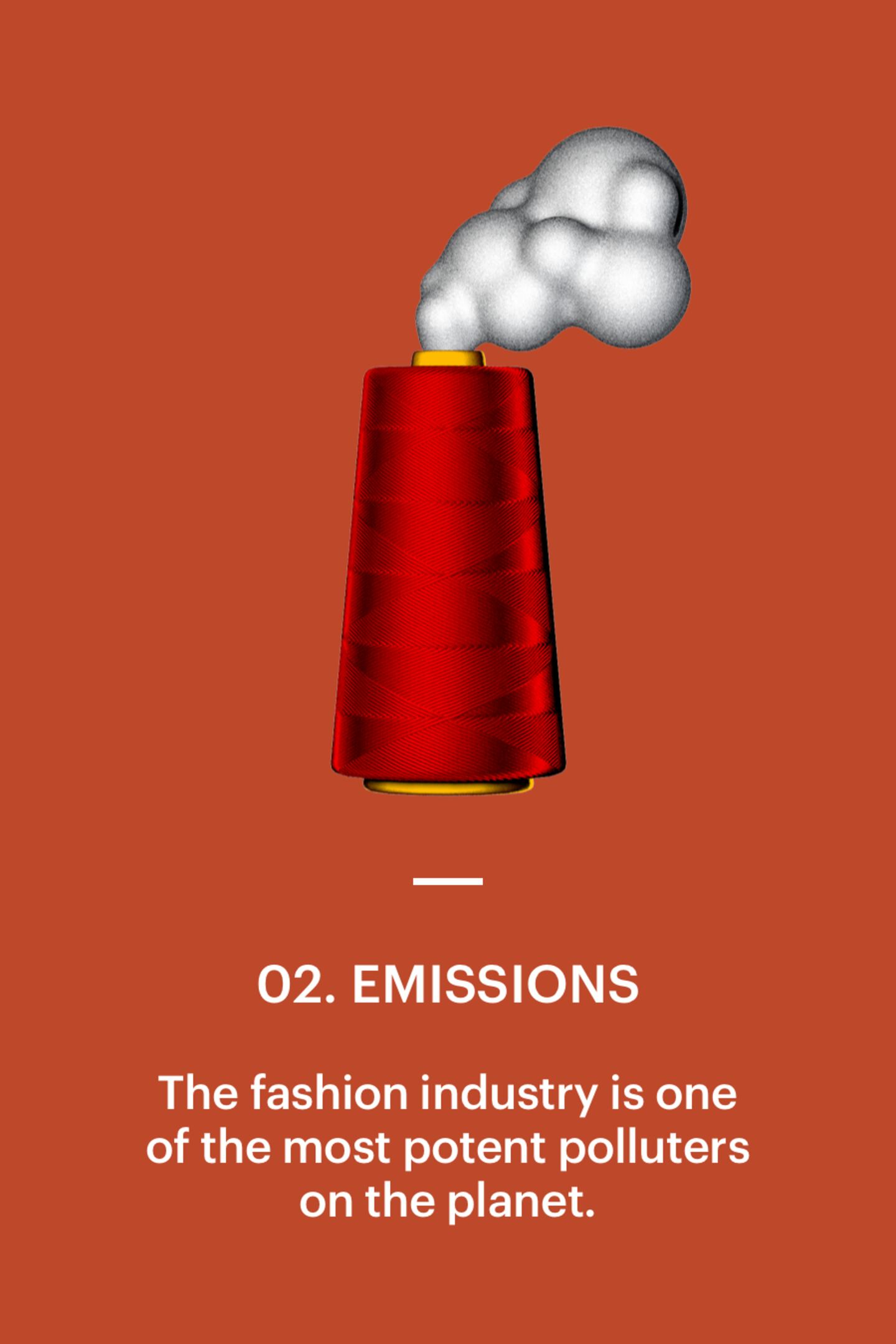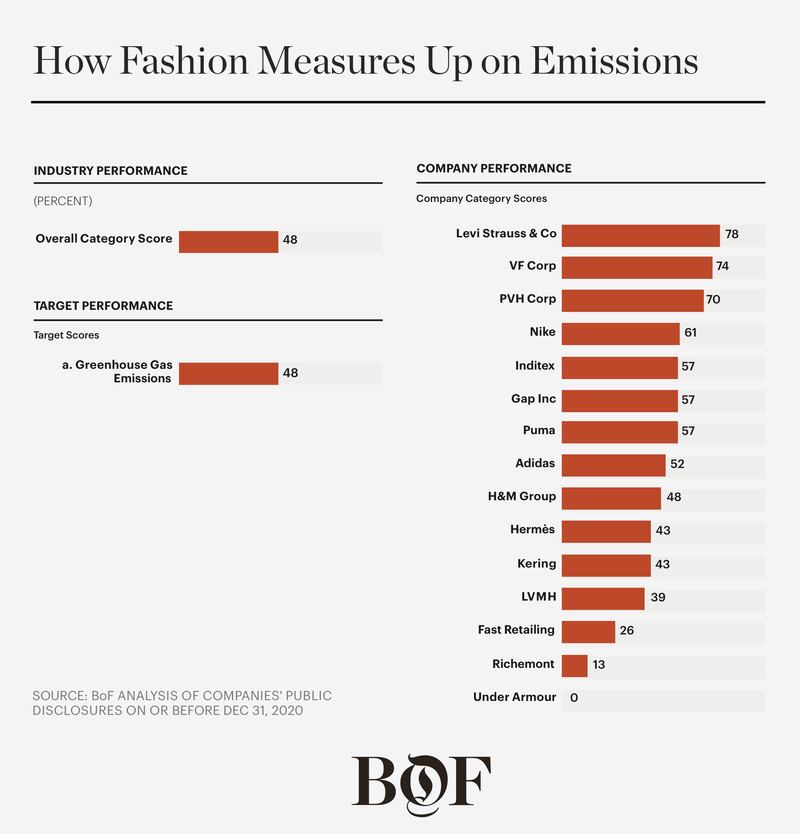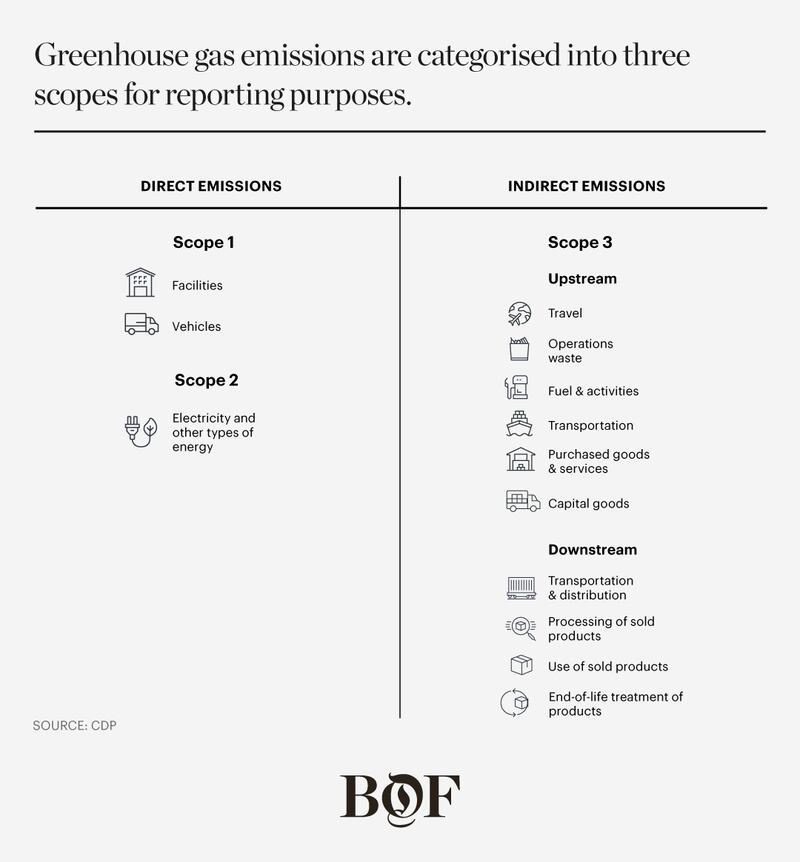
The Business of Fashion
Agenda-setting intelligence, analysis and advice for the global fashion community.

Agenda-setting intelligence, analysis and advice for the global fashion community.

This article appeared first in The Sustainability Gap, an in-depth analysis of BoF’s new report, The BoF Sustainability Index, which tracks fashion’s progress towards urgent environmental and social transformation. To learn more and download a copy of the report, click here.
The BoF Sustainability Index Targets for Emissions:
a. Greenhouse Gas Emissions — By 2030: Reduce absolute greenhouse gas emissions by 45 percent.

Pinning down exactly how substantial fashion’s greenhouse gas emissions are is challenging, but estimates range from 4 percent to 10 percent of the global total. Without significant intervention, the industry will not align with global goals to limit global warming to no more than 1.5 degrees Celsius.
ADVERTISEMENT
A strong framework for change already exists.
Emissions are not decreasing in line with companies’ targets.
There are signs of deepening ambitions.

The Sustainability Council’s Take
“Voluntary commitments will only get us so far, particularly in addressing climate change. Over my career, I have seen great value in companies setting ambitious sustainability targets. Yet while goals such as zero waste, carbon neutrality and closed-loop production can channel a company’s attention and resources, what’s needed is strong, science-based regulation to ensure that the world is reducing emissions at a fast enough pace, and that countries and companies are held accountable.” — Michael Sadowski, Independent Sustainability Advisor
The BoF Sustainability Index is built on over 5,000 data points gathered across the 15 companies included in this year’s edition. To request access to the full underlying data, click here.
The BoF Professional Summit: Closing Fashion's Sustainability Gap
On April 14 2021, BoF will convene leading sustainability experts and global thought leaders for a 3-hour live broadcast of interactive conversations and panel discussions, in which we'll unpack findings from The BoF Sustainability Index and outline the steps that need to be taken over the coming decade to align the industry with global climate goals and social imperatives. Space is limited.
As a BoF Professional member, register now to reserve your spot. If you are not a member, you can take advantage of our 30-day trial to experience all of the benefits of a BoF Professional membership, including the Summit.
Explore all categories from this year's report:
The BoF Sustainability Index is based on a binary assessment that examines companies’ public disclosures up until December 31, 2020. There are limitations to this approach and while the assessment was conducted in good faith, the results should be viewed as a proxy for sustainability performance and not an absolute measure. Where BoF was unable to identify public evidence to support a company’s performance relating to the assessment criteria, it does not necessarily mean the company is taking no action at all or that bad practices are present. Read the full methodology on pages 38-41 in the report here or see the FAQs.
Disclaimer: LVMH is part of a group of investors who, together, hold a minority interest in The Business of Fashion. All investors have signed shareholders’ documentation guaranteeing BoF’s complete editorial independence.
Overconsumption and fast fashion have become easy targets for brands flexing their climate-friendly attributes. Consumers may agree with the message — but take issue with a self-righteous tone.
Traces of cotton from Xinjiang were found in nearly a fifth of samples from American and global retailers, highlighting the challenges of complying with a US law aimed at blocking imports that could be linked to forced labour in China.
The fashion industry continues to advance voluntary and unlikely solutions to its plastic problem. Only higher prices will flip the script, writes Kenneth P. Pucker.
The outerwear company is set to start selling wetsuits made in part by harvesting materials from old ones.